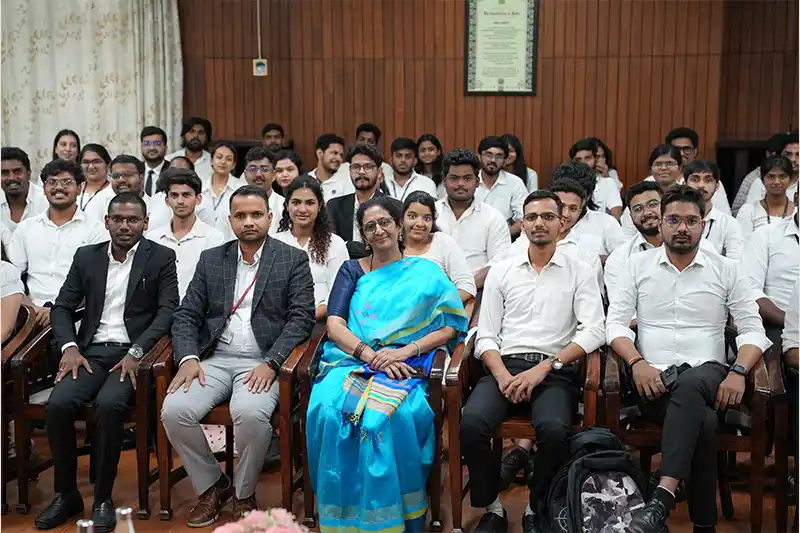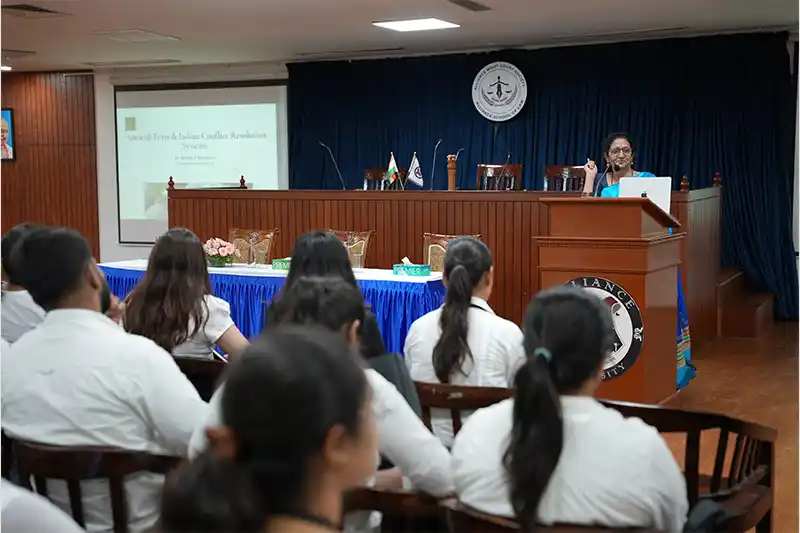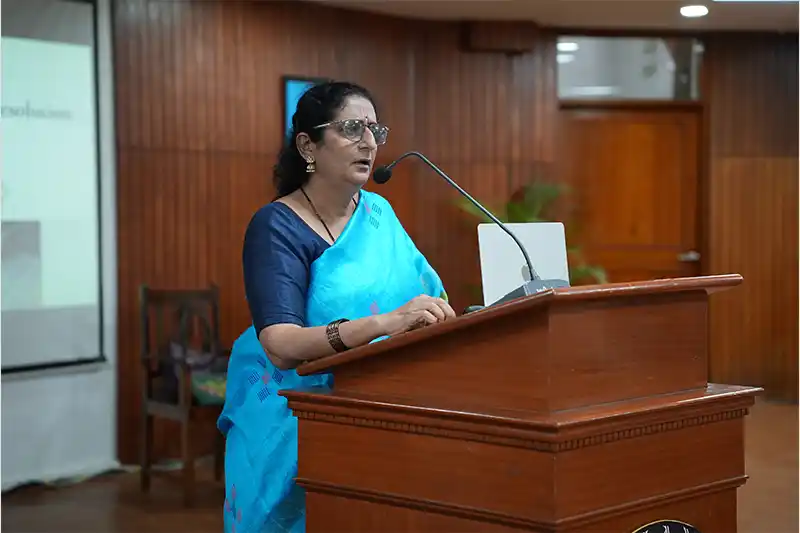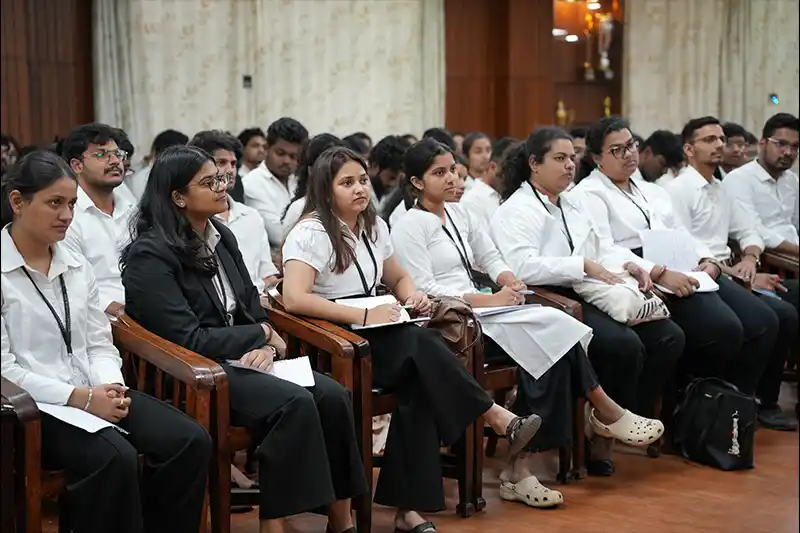Media
Guest Lecture on Hindu Ancient Texts and ADR: A Framework for Modern Conflict Resolution
30 August, 2025




The Alliance Centre for Alternative Dispute Resolution (ACADR), Alliance School of Law, hosted a guest lecture on “Hindu Ancient Texts and ADR: A Framework for Modern Conflict Resolution.”
Exploring Ancient Roots of Conflict Resolution
The lecture was delivered by Adv. Meena Pershad Waghray, Founder of outofcourt.in, lawyer, mediator, and trainer based in Bengaluru. She guided students through an exploration of how ancient Indian traditions of dispute resolution continue to remain relevant to present-day practices in alternative dispute resolution (ADR).
In her talk, Adv. Waghray highlighted the importance of recognising the “people element” in legal education. She encouraged students to view law not only as a system of rules but also as a reflection of values, human relationships, and the pursuit of social harmony.
Key Themes Discussed
The interactive session covered the meaning of conflict, both as a concept and as an everyday reality, and examined its presence in nature. Students engaged in discussions on the structure of the ancient justice system, which included the Dharmashastras, King’s Courts, and Panchayats. The advantages of ADR as faster, more cost-effective, and trust-based alternatives to litigation were also considered.
Drawing from Kalidasa’s works such as Abhijnana Shakuntala, Vikramorvasiyam, Malavikagnimitram, and Raghuvamsam, she illustrated how restorative justice, mediation, and consensus-building were part of Indian tradition. She also referred to the Mahabharata, the Bhagavad Gita, the Vedas, the Upanishads, and the Arthashastras, along with examples from the reigns of Emperor Ashoka and King Vikramaditya, to underline law as a balance of order and compassion.
Institutions and Philosophical Foundations
Students were introduced to key dispute resolution institutions of ancient India such as Panchayats, Guild Tribunals (Sreni), Family and Clan Councils, as well as methods including mediation (Madhyastha), negotiation, division (Bheda), and punishment (Danda) as a last resort. The philosophical principles of Dharma (duty), Karma (justice), and Ahimsa (non-violence) were presented as guiding ideas for conflict resolution.
Bridging Tradition and Modern Practice
The lecture encouraged students to reflect on the transition from community-based systems of justice to modern courts, while considering the role of Lok Adalats, mediation, and arbitration in reconnecting tradition with contemporary practice.
Participation and Engagement
A total of 89 students from Semester IX, along with members of ACADR, took part in the session. Through their active involvement, the event successfully highlighted the continuity between ancient wisdom and modern ADR mechanisms, encouraging students to integrate ethical and human-centred approaches into their future legal practice.
